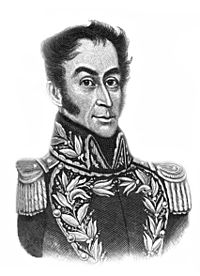User:PJsg1011/September Conspiracy

The September Conspiracy (Spanish: La Conspiración Septembrina), also known as La Noche Septembrina, was an assassination attempt on Venezuelan libertador and President of Gran Colombia Simón Bolívar in Bogotá on 25 September 1828 by opponents of Bolívar's government. The attack failed and Bolívar managed to escape.
Opposition to Bolívar had grown steadily in the years since he had assumed the presidency of Gran Colombia following the successful wars for independence from Spain. Dissent among liberal separatists in New Granada was the most serious, especially after Bolívar attempted to preserve the union of Gran Colombia by reasserting his authority as president-liberator in the so-called "Organic Decree" on 27 August 1828. The decree was meant to be temporary, but Bolívar's political enemies saw it as an overt abuse of power and the foundation of a dictatorship.
Many of these dissenters, mostly students and intellectuals including Colombian writer and politician Luis Vargas Tejada, gathered in secret societies such as the Sociedad Socrata Parlamental (SSP) to discuss the political issues of the state. The idea of killing Bolívar emerged in early September during these meetings. The conspirators sought to obtain supporters in the Armed Forces, recruiting veterans, reservists, and those who had been expelled or were on the verge of being expelled for misconduct.
At midnight on 25 September, at least 12 civilian separatists and 25 soldiers commanded by Pedro Carujo forced down the door of the Palacio de San Carlos in the capital of Bogotá and murdered the guards, then began searching for Bolívar's personal quarters. Bolívar's partner, Manuela Sáenz, woke him up and alerted him to the break-in. Upon learning of what was happening, Bolívar armed himself with his gun and saber and tried to open the bedroom door, but Manuela convinced him to escape through the window. While Bolívar made his escape, Manuela confronted and entertained the conspirators.
The attacks resulted in the death of Colonel William Ferguson, an English aide-de-camp to Bolívar, and the wounding of a young man named Andres Ibarra.
